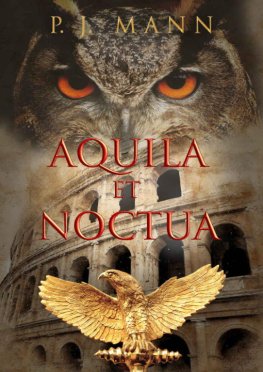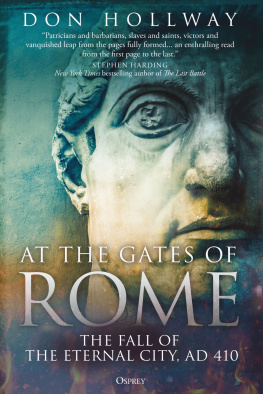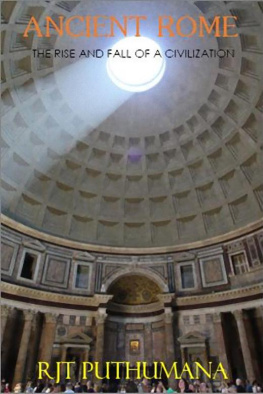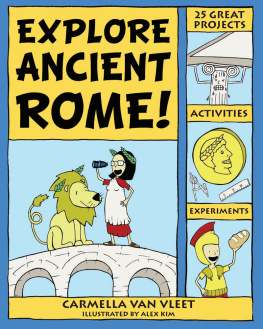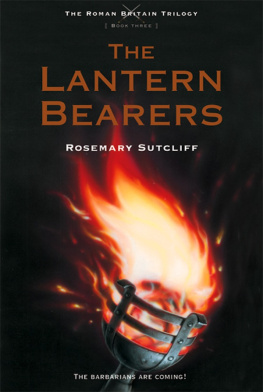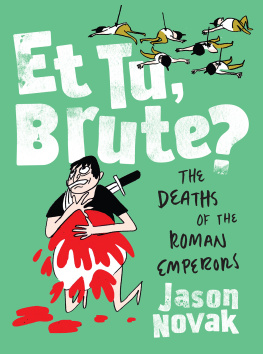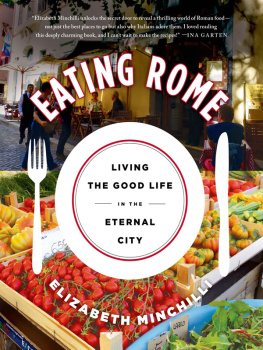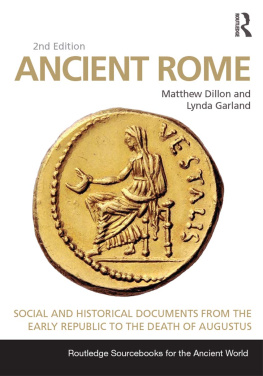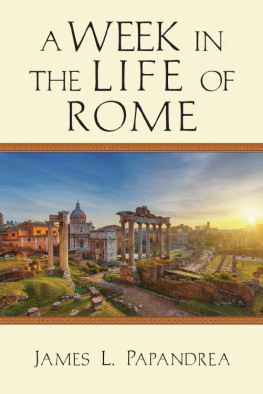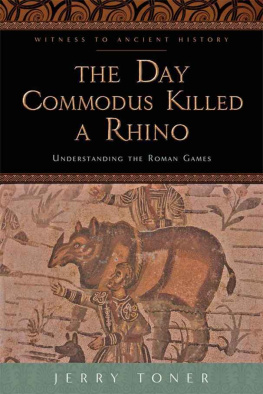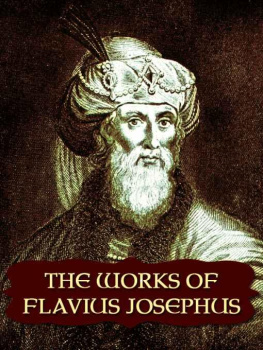P. J. Mann
AQUILA ET NOCTUA
This novel is a work of fiction; however, there are historical references to a particular period, and some clarification has to be made. The novel starts with the end of the third Jewish war (135 CE).
In 70 CE, Jerusalem had been completely sacked by Emperor Vespasian's eldest son Titus. The Romans wrapped up a horrifyingly bloody suppression of the Second Jewish Revolt (ca. 66 CE), which ended in 73 CE at the final siege at Masada. The city was razed to the ground after it, and the all-important Temple was looted. People still inhabited the ruins, and the Jews still lived in Judaea.
In 129/130 CE, Hadrian promised the Jews he would rebuild Jerusalem. His promise initially excited them, until they learned the truth; the Romans were rebuilding the city as Aelia Capitolina, complete with a temple to Jupiter. The process started with plowing the land, which distressed the Jews. To till the holy land of Jerusalem was forbidden. This launched the Third Jewish War, led by Simon bar Kochba, who styled himself as the Messiah (this also distanced the Jewish Christians from the Jews, as the Christians already believed Jesus was their Messiah). Many people died during the war (~580k in its suppression). Afterward, due to the history of rebellion, Hadrian decided to merge Judaea with Syria and called the entire province, Syria Palaestina.
Whether Hadrian named the city Aelia Capitolina before or after the revolt is ambiguous. Cassius Dio says that is the cause for the rebellion, but Eusebius claims it was done in tandem with the provincial renaming. Regardless of the order, Hadrian's name change sought to remove the Jewish identity from the land. Jews and Christians were banned from the region afterward, and from then on, it was mostly known as Palaestina and Aelia Capitolina, instead of Judaea and Jerusalem. Jewish sources still called it the Land of Israel, though.
I have placed the renaming of the city of Jerusalem in Aelia Capitolina as claimed by Eusebius, in tandem with the Provincial renaming after the conflict.
Sources: Ariel Lewin- The Archaeology of Ancient Judaea and Palestine
Peter Schfer- The Bar Kochba War Reconsidered
Ronald Syme- The Wrong Marcius Turbo in the Journal of Roman Studies
Cassius Dio 69.12-15
Atrium: The atrium was the most important part of the house, where guests were greeted. The atrium was open in the center, surrounded at least in part by high-ceilinged porticoes that often contained only sparse furnishings to give the effect of a large space. In the center was a square roof opening called the compluvium in which rainwater could come, draining inwards from the slanted tiled roof. Directly below the compluvium was the impluvium.
Impluvium: An impluvium was basically a drain pool, a shallow rectangular sunken portion of the Atrium to gather rainwater, which drained into an underground cistern. The impluvium was often lined with marble, and around which usually was a floor of small mosaic.
Exedra: The exedra was a large, elegant room usually located off the peristyle garden. It was used for formal entertainments and lavish dinner parties.
Peristyle garden (garden): The peristyle garden, was an open courtyard within the house; the columns or square pillars surrounding the garden supported a shady roofed portico whose inner walls were often embellished with elaborate wall paintings of landscapes.
Couch (lectus): The lectus, or couch, or bed, was perhaps the most important item of Roman-style furniture. Used for sleeping, sitting, relaxing or eating, the lectus was a wooden frame supporting crisscrossed leather straps that held a mattress stuffed, originally with straw, and later with wool or feathers.
Exedra: The exedra was a large, elegant room usually located off the peristyle garden. It was used for formal entertainments and lavish dinner parties.
Sestertius (pl. Sestertii): was an ancient Roman coin. During the Roman Empire, it was a large brass coin.
The sun shone brightly in the sky on that late summer day. The successful campaign in the territories of Palestine brought new glory to the Empire and filled every corner of the city with celebrations.
The massive military action, planned by Emperor Hadrian, had brought about the final defeat of the rebellious Jews in the third Jewish revolt.
Jerusalem was renamed Aelia Capitolina in honor of the victorious emperor and as an ultimate humiliation to the rebels. The prisoners were sent all over the Empire to be sold as slaves while the Roman generals and commanders were decorated in the public square of the Forum.
It was a joyful period throughout all of Rome, and it should have been no exception for Marcus Tiberius Numida. However, something weighed heavily on his mind and alienated his soul from the revelry.
He wandered through the streets of Rome, not paying attention to where he was going, until he found himself in the slave market in the Forum.
Several specimens of males and females, crammed into cages, peered from between the bars, waiting to be yanked out and pushed to line up behind the merchant. Their eyes revealed fear and confusion.
Each merchant touted the good properties of each slave they were selling, wildly gesticulating to underline their words to attract customers, as crowds of curious people and potential buyers gathered around.
The sobs of the waiting slaves and the clang of their chains against the bars, combined with the din of the curious onlookers and the raucous voices of the merchants. The stench of bodily fluids melded with the scent of food that was sold in the square.
Most of the slaves wore dirty rags that barely covered their bodies; others were completely naked.
Marcus Tiberius looked around absentmindedly. He was not interested in buying a slave, but an eleven-year-old boy caught his attention. He stood in a composed, almost haughty way.
His eyes, swollen from tears, showed confusion, fear, and despair. Every time he turned his head to look at the main cage to look at his family, the merchant snarled and hit him to face the throng.
Despite his ragged clothes and the coat of grime on his body, he stood erect with a defiant flash in his brown eyes.
Whoever buys it will have to spend a lot of time washing it to see what hides underneath, he smiled.
The merchant seized the opportunity to seal the first deal of the day. Can it be that Marcus Tiberius Numida is interested in a purchase?
Marcus Tiberius turned his gaze toward him, a bit upset to be disturbed from his thoughts.
It is hard to believe that this little thing could be of any interest to anyone, especially when its filthiness does not allow one to see what it looks like. What is it, a male or a female? he asked in a sarcastic tone.
With a sudden move, the merchant ripped away the cloth covering the childs body. He is a male, as you can see.
Marcus walked steadily toward the little boy. When he was close enough, he looked deep into his eyes and then started to examine him thoroughly.
He opened his mouth and looked at his teeth; they were perfect.
On close inspection of the slaves body structure, he noted the strong, perfectly proportioned body, not ruined by the barbaric circumcision practiced by the Jews.
Marcus Tiberius smiled, satisfied, and took the boys little hands in his own; he felt them, beyond the dirt, unexpectedly soft and delicate. He looked down at the bare feet, swollen and bleeding.
It occurred to him that they had never walked without shoes before and probably would require time and care to recover fully.

